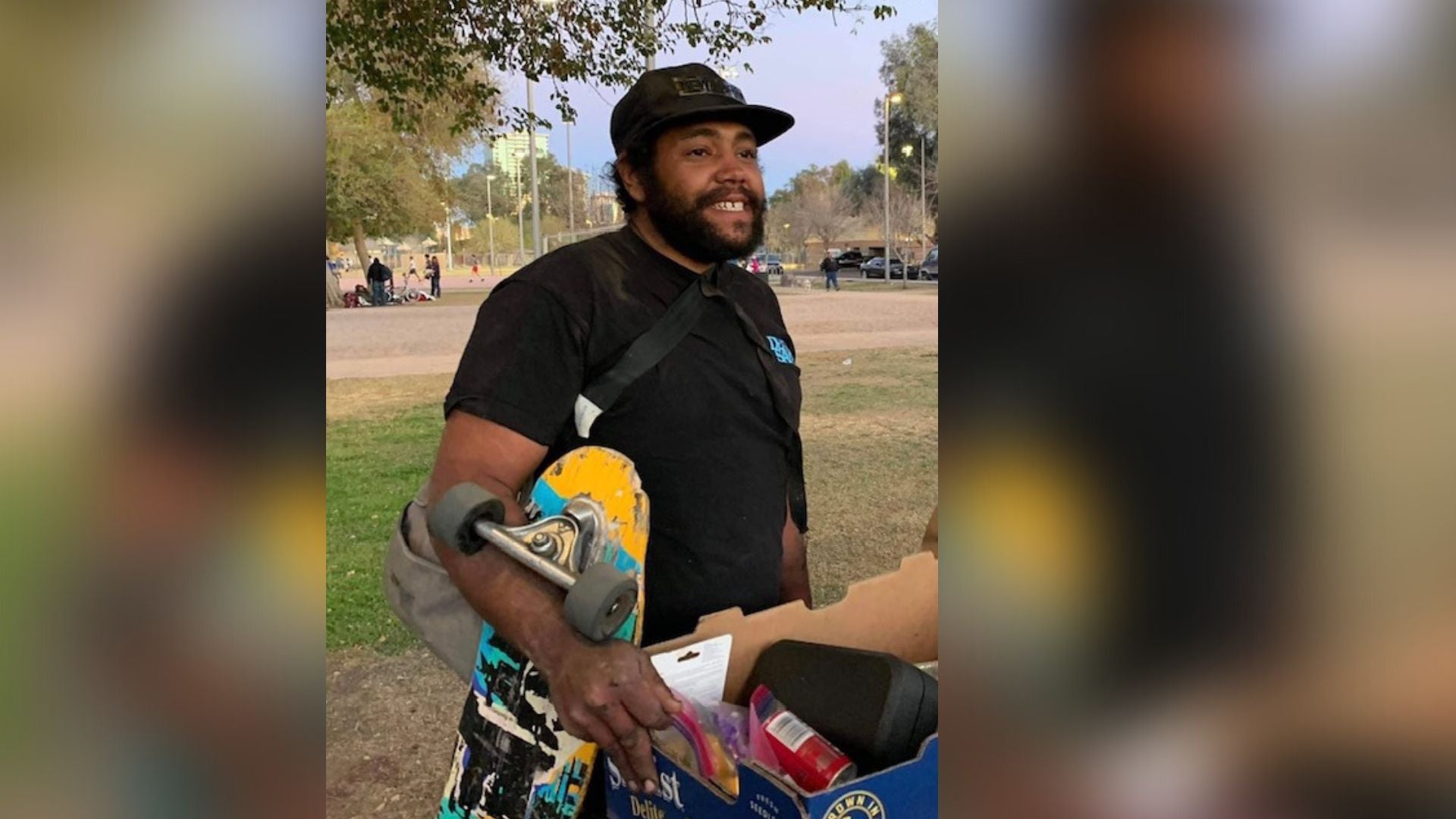Arizona police watched a man drown. Uvalde police stood outside the school. What are cops even for?
Sean Bickings called out, ‘I’m drowning,’ and, ‘Oh God, please help me,’ while officers stayed on land, with one stating, ‘I’m not jumping in after you’


Your support helps us to tell the story
From reproductive rights to climate change to Big Tech, The Independent is on the ground when the story is developing. Whether it's investigating the financials of Elon Musk's pro-Trump PAC or producing our latest documentary, 'The A Word', which shines a light on the American women fighting for reproductive rights, we know how important it is to parse out the facts from the messaging.
At such a critical moment in US history, we need reporters on the ground. Your donation allows us to keep sending journalists to speak to both sides of the story.
The Independent is trusted by Americans across the entire political spectrum. And unlike many other quality news outlets, we choose not to lock Americans out of our reporting and analysis with paywalls. We believe quality journalism should be available to everyone, paid for by those who can afford it.
Your support makes all the difference.Back in 2013, the Chicago Police Department decided they would no longer immediately respond to calls where the victim was not in immediate danger. “I don’t mean to be flippant here, because I’ve been the victim of a burglary at least three or four times,” then-CPD superintendent Kevin McCarthy said at the time. “I’d rather have the officer on street, where he can prevent the shooting.”
Except they haven’t prevented shootings. 2021 was the Windy City’s deadliest year in a quarter century, and the first five months of 2022 have already seen 971 shootings. And last week, in Uvalde, Texas, a gunman spent more than an hour in an elementary school gunning down 19 students and two teachers while police waited outside, failing to enter because they were afraid of being shot. Better to let the 10-year-olds take the bullets.
Whether the police are good value for money is something that has been debated extensively over the past two years. Following the murder of George Floyd at the hands of Minneapolis police, some on the left began demanding that we defund the police — with the right insisting this was a stupid idea because we need the police to protect us.
Who do they protect, though? Just this week, a video emerged of police in Tempe, Arizona who watched a man drown to death, refusing to put their own lives on the line to attempt a rescue. Sean Bickings, 34, begged police — as evidenced in a released transcript — to save him, saying, “I’m drowning,” and, “Please help me. Oh God, please help me,” while officers stood on land, with one stating, “I’m not jumping in after you.” Increasingly it is becoming clear that the police are not interested in protecting the lives and property of everyday citizens. This begs the question: What are the cops even for?
It’s a question we should have asked following the 2018 school shooting in Parkland, Florida. A group of students sued the police for failing to protect them during that rampage, in which 14 students and three staff members were killed, but the lawsuit was dismissed because, as a judge ruled, the police have no constitutional duty to protect people unless they are in custody.
Read that again because it bears repeating: The police have no legal duty to protect you.
What is the point of the police if they will not rescue an obviously drowning man or even rush in to protect the children of our nation? The answer seems pretty obvious to me. The police are meant to keep working-class people in line and protect property. It’s why you see a militarized police presence during uprisings, like those we saw after the murder of George Floyd, and it is also why police refused to risk their lives in Parkland, Uvalde, and more recently in Tempe.
Simply put, the police are not on the side of you and me. They are on the side of the elites. It is perhaps unsurprising, then, that a 2018 University of Chicago study found that working class people are more likely to experience police use of force than wealthier individuals, and “Black residents with incomes of less than $20,000 were significantly more likely to experience exposure to police shouting, cursing, threatening arrest, and handcuffing than Black residents with incomes of $20,000–$49,000 and $50,000 or more, controlling for sex and age.”
That does not mean white working-class folks do not experience police brutality or excessive use of force, though. That was the experience of Hunter Brittain, an unarmed seventeen-year-old white boy from Arkansas who last year was killed by a police officer as he tried to fix his truck. “Having an income of less than $20,000 significantly increased the risk for exposure to police use of force during a street stop for white residents,” the study discovered. Hunter discovered it, too. The officer who shot him was this year convicted for his killing.
There is obvious institutional rot at the heart of American policing. Is every officer bad? No, of course not. But every officer is human. These are people like you and me, complete with the foibles and flaws being human entails. They are not superheroes — though for some inexplicable reason we treat them as though they were. Indeed, as the murders of George Floyd and Hunter Brittain show, they are just as likely to be villains as they are heroes. Indeed, we know that white supremacists and far-right extremists have infiltrated police forces across the country.
It makes no sense, then, that we arm them as though they are Rambo. I remember watching the 2014 Ferguson protests in abject horror. Why, I wondered, did these cops need tanks? Writing for Mother Jones at the time, Shane Bauer found that the “Department of Defense has given $5.1 billion worth of equipment to state and local police departments since 1997, with even rural counties acquiring things like grenade launchers and armored personnel carriers,” and that the Department of Homeland Security has “handed out grants worth eight times as much — $41 billion since 2002.” That money, Bauer points out, was intended for counterterrorism in the wake of 9/11, but “DHS specifies that once acquired, the equipment can be used for any other law-enforcement purpose, from shutting down protests to serving warrants and executing home searches.”
What it isn’t for, however, is protecting you and me. That should give everyone — left, right, and center — pause and immense cause for concern. Here we have a militarized force on the streets of our republic which is charged with protecting not the citizens, but… who, exactly?
As a nation, it’s time for a national reckoning with policing and the role of police in our society. We need to reframe policing, rebuilding the institution from the ground-up as one that serves not the interests of the state and the wealthy, but of everyday folks like you and me. We need police to be on our side.
I’m reminded as we close of my friend’s reaction to the news that CPD wouldn’t show up. Her words still echo in my brain. “If the police won’t protect me,” she asked, “what’s the point of them?” After all these years, I still don’t know the answer.